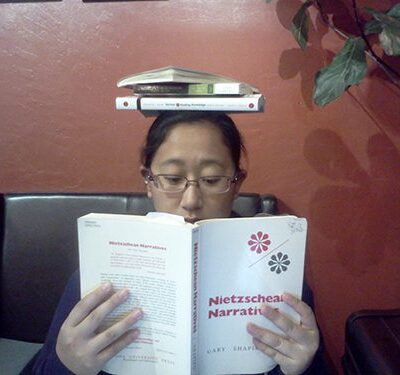Tiffany Ku Humanities and Social Science
A Nietzschean Interpretation of Autobiography
If as many theorists of the genre argue, authenticity is essential to autobiography, what place, if any, does the literary occupy in it? By literary I mean all of the subjective qualities that interpretation introduces to any verbal description of reality. On the one hand, it seems impossible to depict a complete life without recourse to interpretation; on the other, the various effects of interpretation might be said to amount to distortions of the life depicted, rendering it inauthentic. At the core of Nietzsches philosophy is the “”famous insistence that every view is only one among many possible interpretations, his own views…included”” (Nehamas, 1); this insistence is called perspectivism. Perspectivism offers insight on the relationship between authenticity and human life as a fundamentally constructed, which is to say, interpretive, experience. Nietzsche’s writing offers a new paradigm for autobiographical discourse that resolves the genres need to reconcile its literary expressiveness with the imperative to authenticity. My thesis will explore this issue through a literary analysis of Nietzsches philosophical work, Thus Spake Zarathustra, showing it to offer not only principles for autobiographical authenticity, but an example of what autobiography written according to such principles might look like.
Message To Sponsor
As a junior transfer student, you learn quickly that opportunities come once, or not at all. SURF is my opportunity to think deeply--by allowing me to stay in Berkeley during the summer, SURF has granted me valuable access to Berkeley's unique community of interlocutors and dialogues. I cannot think of a better way to spend a summer than with my professors and fellow students, up to the gills in, but joyfully swimming through, philosophy, literature, and critical theory. I am profoundly grateful for this research experience and I hope I emerge from it as a wiser person.